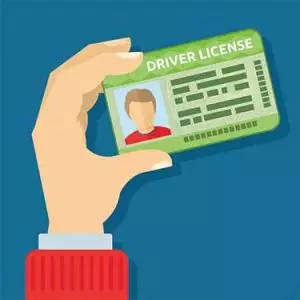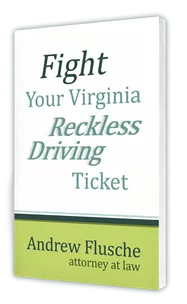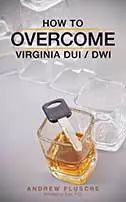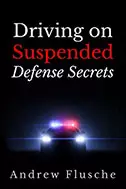Driving Without a License in Virginia

Penalties For Driving Without a License in Virginia
A first offense for driving without a license in Virginia is a mid-level misdemeanor, punishable by up to six months in jail and a $1,000 fine. Judges often impose lesser sentences, and a skilled traffic lawyer can argue for leniency.
A second violation becomes a class 1 misdemeanor, which raises the punishment max to a $2,500 fine and up to 12 months in jail.
For any “no license” offense, the judge can suspend your license for up to 90 days.
The precise penalty that you’re facing depends upon the specific judge who’s hearing your case. If convicted, your penalty could vary quite widely depending upon the facts of your case and how many prior no license violations you have. A first offense may just be a small fine of $100, but a third offense could entail several days of jail.
To discuss the possible penalty and defenses for your case, please contact my office.
Are you wondering about the penalty for driving without a license in Virginia? Are you trying to figure out what the fine might be and what defenses you may have? You’re in the right place!
This article will explain all the details of 46.2-300 driving without a license in Virginia. You’ll learn the law, defenses, penalties, and how to get more help with your case.
The code – driving without a license in Virginia – 46.2-300
The basic law for driving without a license in Virginia is under 46.2-300 of the Virginia Code:
No person, except those expressly exempted in 46.2-303 through 46.2-308, shall drive any motor vehicle on any highway in the Commonwealth until such person has applied for a driver’s license, as provided in this article, satisfactorily passed the examination required by 46.2-325, and obtained a driver’s license, nor unless the license is valid.
A violation of this section is a Class 2 misdemeanor. A second or subsequent violation of this section is a Class 1 misdemeanor.
Upon conviction under this section, the court may suspend the person’s privilege to drive for a period not to exceed 90 days.
While that seems straightforward, the law can actually get a bit complicated for these charges, depending upon your situation, based on the exceptions under 46.2-303 through 308.
One of the major exceptions that comes up near Virginia’s many military bases is under 46.2-305:
Every person in the armed services of the United States, when furnished with a driver’s license, and when operating an official motor vehicle in such service, shall be exempt from licensure under this chapter.
Another exception that comes up often is under 46.2-307 for people who are licensed in another state or country:
A. A nonresident over the age of sixteen years and three months who has been duly licensed as a driver under a law requiring the licensing of drivers in his home state or country and who has in his immediate possession a driver’s license issued to him in his home state or country shall be permitted, without a Virginia license, to drive a motor vehicle on the highways of the Commonwealth.
Call an experienced Virginia traffic lawyer today
If you’ve been charged with driving without a license in Virginia, defense attorney Andrew Flusche today to discuss your options.
Defenses for driving without a license in VA
As you can see from the law above, two major defenses to driving without a valid license in Virginia are: 1) you are active duty military (or you’re the spouse or minor child of a service member, and 2) you are not a Virginia resident and you’re licensed in your home state / country.
The military defense is straightforward. As long as you’re active duty, you’re good to drive in Virginia with your home state license. This exception also applies to your spouse and your minor children.
The nonresident defense can get complicated. Some cases are simple, if you have no roots at all in Virginia, and you’re just traveling through. But what if you’ve lived in Virginia for a little while? Can the Commonwealth prove that? The law is quite precise on who constitutes a “nonresident” for license purposes. If you had a valid license from another state or country in your possession when you were pulled over, you may have a strong defense on this point, especially if you didn’t make any statements to the officer about where you live.
Other defenses include things such as:
Can the Commonwealth prove that you were driving the vehicle?
Can the Commonwealth prove that you were actually the person the officer stopped?
And if the Commonwealth is claiming that your license isn’t valid because it’s suspended, they still have to prove that you had notice of the suspension. If you had no reason to know that your license isn’t valid, you should not be found guilty of 46.2-300.
Photo by: CaptPiper Driving past a Corn Field





